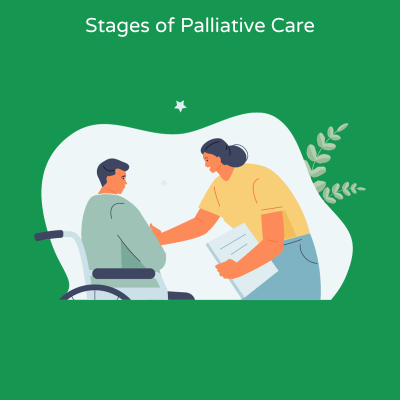Stages of Palliative Care

More often than not, palliative care is misunderstood as end-of-life care. On the contrary, it is an approach that benefits individuals diagnosed with a wide range of serious conditions that make it difficult to live a normal life, including spinal cord injuries, strokes, congenital anomalies, and non-communicable diseases.
Palliative care can be initiated in various stages of an illness in a patient’s life, from being an integral part of the early course of an illness to providing comprehensive care that addresses the physical, emotional, economic, and spiritual needs of not just the patient but also their family, regardless of the specific diagnosis.
The goal of palliative care is to focus on improving the quality of life for a patient.
Some of the stages in palliative care include the following:
Creating a Plan
The multidisciplinary team works towards developing a personalized care plan based on the patient’s unique needs, preferences, and goals As a patient’s needs evolve, the plan is adjusted to ensure continuous support to the patient.
Preparing Emotionally
Coping with an illness can be emotionally overwhelming for a patient and their family. The team helps address fears, anxieties, and uncertainties arising from an illness and offers psychosocial support and practical and social interventions.
Early Stage Care
In the early stage of palliative care, the focus is on establishing goals of care, managing distressing symptoms, if any, providing information about illness trajectory, and enabling families to make appropriate decisions.
In the case of End-of-life: Late Stage Care
As the illness progresses, the late stage of palliative care intensifies towards symptom management and shifts toward end-of-life care. In this stage, the focus actively extends to aiding the family in navigating the challenges of caregiving and preparing them for the impending bereavement.
In case of other illnesses that limit living a normal life, a multi-disciplinary team helps provide support to help the patients rehabilitate / or live as normal as possible. Their goal includes empowering individuals to earn a livelihood and achieve independence to be able to live with dignity.
Each stage in palliative care is essential in providing comprehensive, patient-centered support to enhance the patient’s comfort, dignity, and overall well-being while respecting their values and preferences.
Could you help us help others?
Pallium India is a national registered charitable trust (No. 693/IV/2003) formed in 2003 by Dr. M. R. Rajagopal. It is an NGO based out of Trivandrum, Kerala, with the objective of alleviating serious health-related suffering (SHS) of 7-10 million people in India. You can choose to donate towards the many initiatives Pallium India offers.






